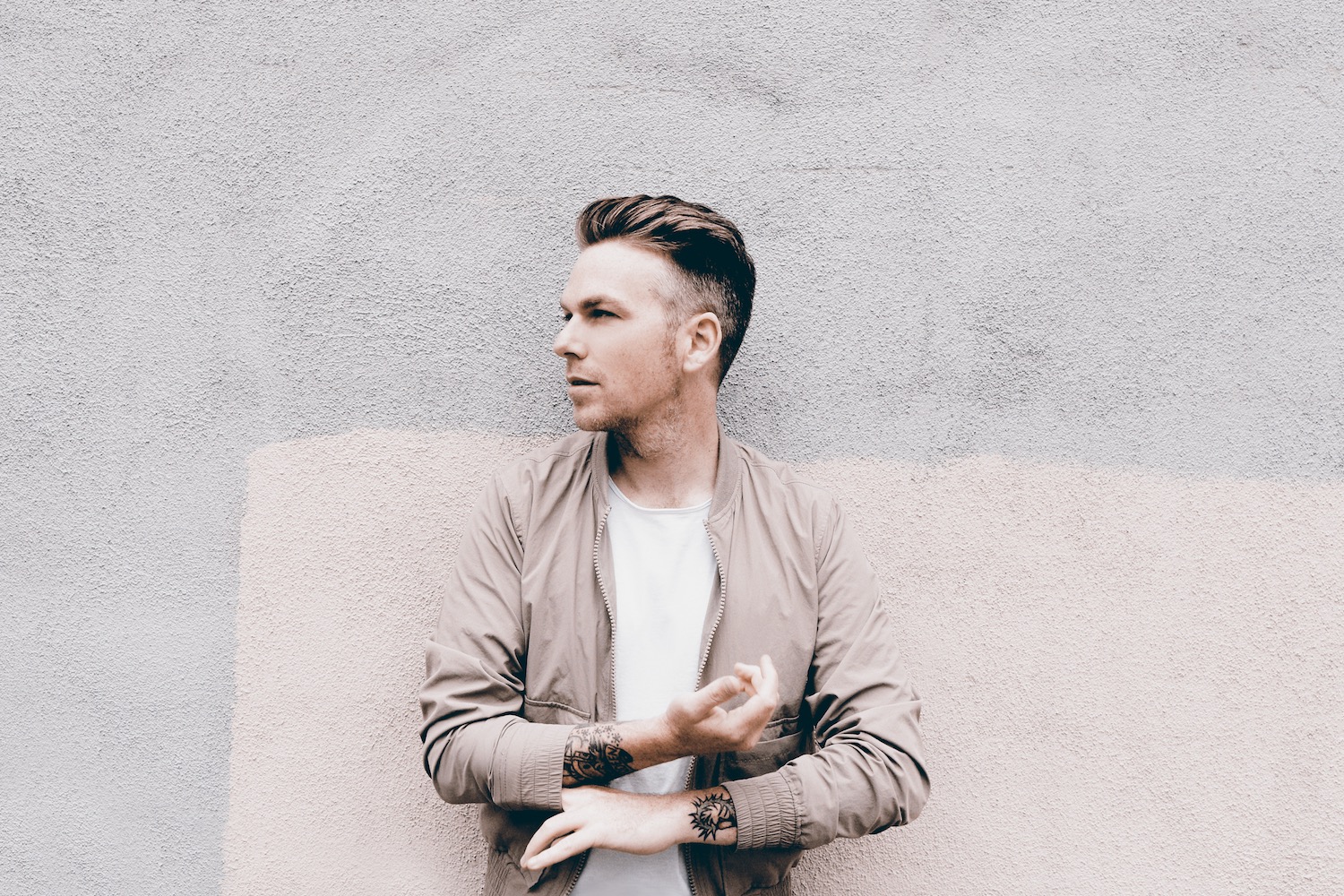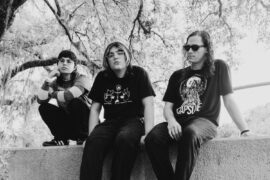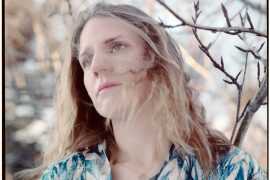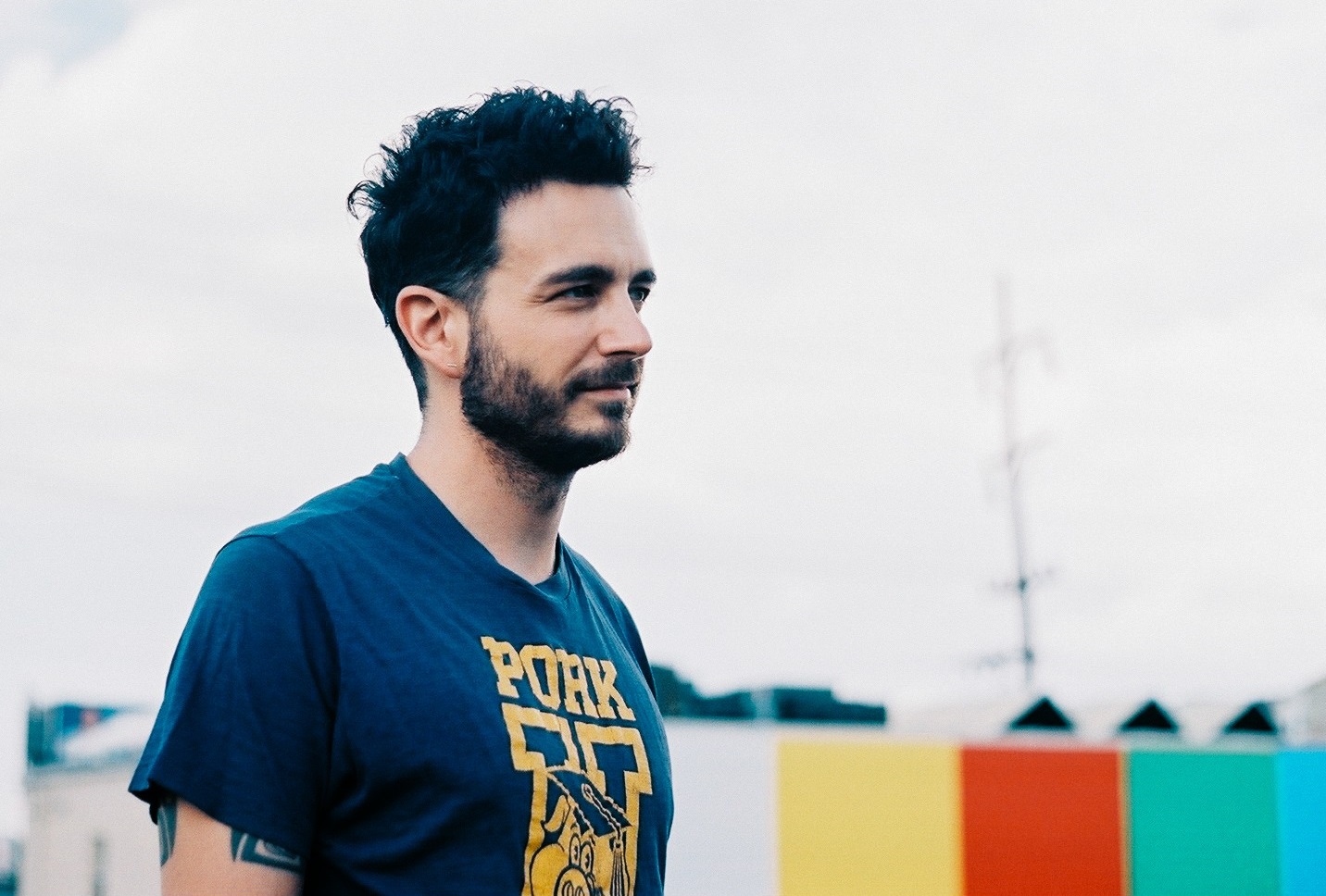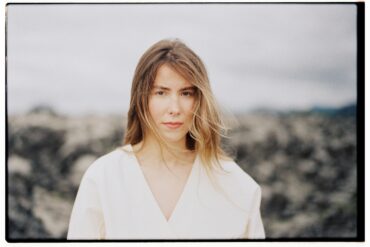British singer/songwriter Maya Delilah draws inspiration from everywhere and hopes to ignite that same creative spark in young women around the world – all while making music for the sake of unrestrained, beautifully crafted expression. Her debut album ‘The Long Way Round’ is a master class in genre-bending and a thrilling introduction to one of North London’s most electrifying new voices.
‘The Long Way Round’ – Maya Delilah
I’m not trying to make music to be famous, I’m trying to make music because I just want to make music.
* * *
North London singer/songwriter and guitarist extraordinaire, Maya Delilah, is one of the most exciting and inspiring new young voices and acts rising in the industry today.
With remarkable guitar solos, a honeyed voice, and a breadth of genre-bending talent, Delilah creates art that provokes connection and joy.
An Atwood Magazine Editor’s Pick and one of our 2025 Artists to Watch, Maya Delilah’s music has always felt real and whole. From the technicolor fantasy of “Tangerine Dream” from her first EP, 2020’s Oh Boy, to the soul-soaked jazz dreamland of “Break My Heart Again” from her second EP, 2021’s It’s Not Me It’s You, Delilah has only ever done exactly what she wanted to. That sentiment continues to hold true today as refuses to place herself in any boxes, instead traversing her own path and making whatever feels right for her.
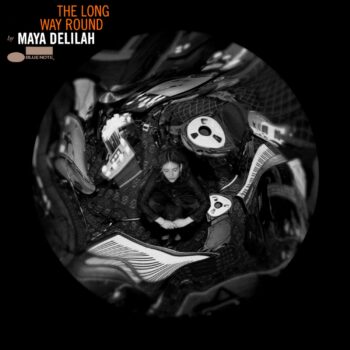
Just a couple of days ahead of the release of her sensational, explorative debut album, The Long Way Round (March 28 via Blue Note Records), Delilah sat down with Atwood Magazine and provided a bit of insight into the record and her artistry, discussing everything from her guitar heroes and influences to her aesthetic inspiration, creative process, and her ultimate goals as an artist – all of which reveal her to be wholly radiant and refreshing.
From her music to her style and personality, Maya Delilah is a real class act to have on your radar. She’s got a fire burning just below the surface, and it’s rapidly propelling her towards boundless success.
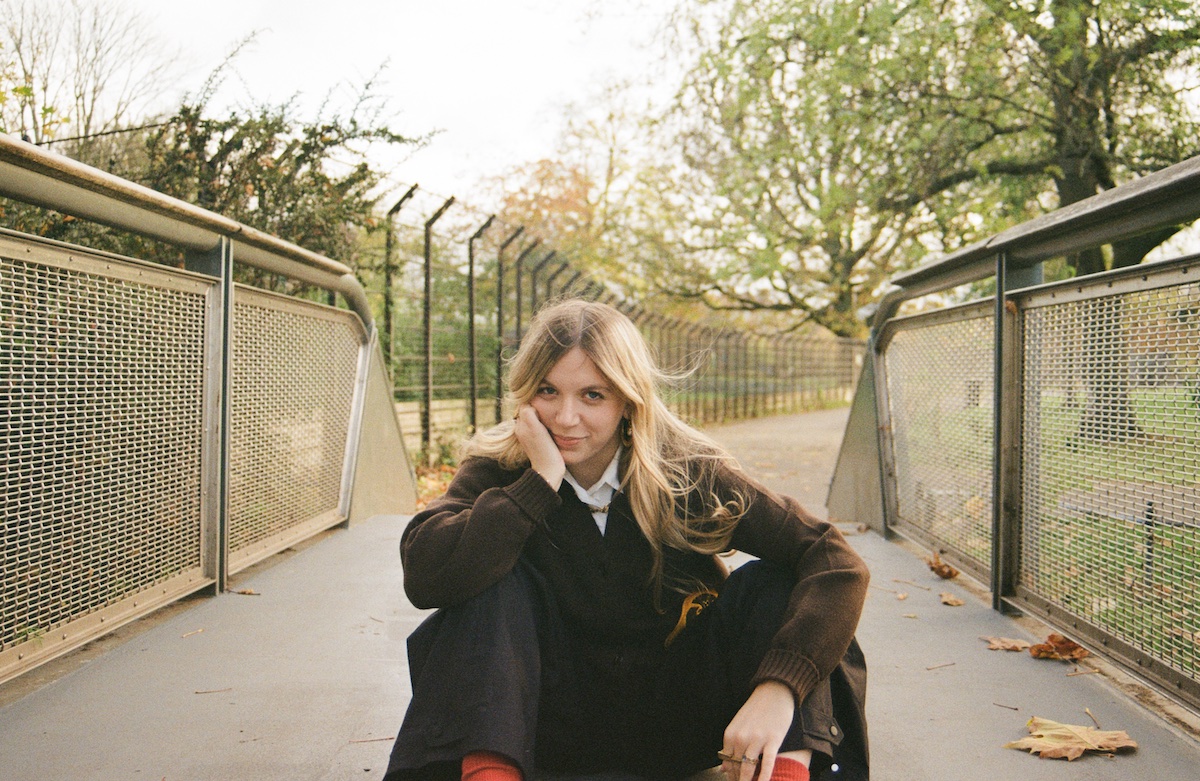
Getting into the details of our interview, as our time together begins, Delilah starts by sharing how “surreal” it feels for her album to be coming out so soon. We then transition to talking about the album in more detail.
She divulges some information about how the album came to be, saying, “When I signed to Blue Note, it was kind of in discussion that that’s what I was going to do, and it felt like the perfect label to release my first debut album with.”
Delilah continues, “I had already made two EPs and released a bunch of singles, but it’s just such a difference to make a huge album compared to a smaller project. It felt a bit like you really get to pour your absolute heart and soul into it, and I felt like I had gotten to the stage where I was ready to do that.”
She explains that while she felt ready to leap, “I was still quite confused about what style I wanted to do, when I was at that stage, but I ended up, with this record, just putting all the things I get inspired by into it. So, I was like, ‘I’m just going to do everything I want to do, and put this record out and stop suppressing myself into one genre.’”
And that is precisely what Delilah did with The Long Way Around, a sonically and lyrically multilayered project with a clear range of influences permeating its essence, and ultimately making it pure Maya Delilah.
I’m just going to do everything I want to do, and put this record out and stop suppressing myself into one genre.
* * *
When it comes to her influences for this record, Delilah shares, “When I was making this, I went back to a lot of records that I was listening to when I was young.” She lists out Joni Mitchell, Prince, Don McLean, Rufus Wainwright, Tedeschi Trucks Band, John Mayer, and Norah Jones as her primary guiding lights. About these artists, she explains, “I’ve listened to them throughout my life,” but when going into this project she delved deep into the nostalgia of listening to them and into the records that felt the most nostalgic to her. – which is another topic of discussion that we’ll touch on more, a bit later in our interview.
At this point, though, we talk briefly and specifically about Prince’s influence, particularly on her song, “Squeeze,” which was one of the singles released leading up to the album’s drop. “He’s probably one of my main inspirations of all time,” Delilah says. As it so happens, Prince is one of the reasons why Delilah has decided to pursue music in the first place, but we’ll get into that more later.
First, it’s all about her process of creating and about some more of the songs in more detail. When asked about what her creative process is like, Delilah notes that she never writes alone. She remarks firmly that she is “not a bedroom writer” and will “always write with other people” for two main reasons, the first being that it helps her to maintain focus and the second being that she loves sharing experiences with others. As such, Delilah opens the curtain more and says, “Half of this album was made in Devon, in the countryside of England, in this barn owned by a producer called Pete Miles, who is like super analogue and records everything onto tape.”
She adds, “I did two incredible writing trips where I’d bring down like five or six really talented musician friends of mine and we would write and record the songs all together each day.”
As she talks, Delilah paints this idyllic image of creatives coming together and doing what they do best, she discusses how they would write in the mornings and each afternoon, and then record in the evenings straight onto tape with a live band.
“That was a totally new way of working that I had never done before,” she says, “And I now want to do it forever.” Regarding the second half of the album, Delilah tells us that “it was made across London and LA more digitally” with fewer people involved, though the process was still “fun and creative.”

In all, the album took about three years to make, with “Necklace” being the first of the twelve tracks that would make it onto the project. Speaking of “Necklace,” Delilah shares that it was made in LA with two of her friends while she was on tour supporting the band Melt.
As for a few other songs on the album, Delilah imparts some insight into the stories behind them and how they were made. We first talk about “Maya, Maya, Maya,” the fourth track on the album. About this song, Delilah tells us, “This one came about really naturally. I was literally just sitting around having breakfast with some friends in Devon and with Martin [Brown] who started playing the chords and I just sang the first song as kind of a joke as a kind of whimsical match to the chords and then we were like ‘Oh no, maybe we’ll keep going.’ And we’d all been discussing the fact that we were people pleasers and growing up we felt like we could be taken advantage of.”
Alongside Brown, Delilah wrote the song with Grace Lightman, and confesses, “it’s kind of a blur honestly, because it was so quick. It felt like we had the same experience, which made it a really nice thing to be able to collectively write about, even though it’s very obviously about me, because it has my name in it a million times. But like I was even saying to someone like an hour ago, it’s funny because that song seems to be having the most success at the moment, of the ones released so far. “
She laughs, observing how, “It’s funny that a song that is literally my name seems to be relating to people more than other songs I’ve written.”
Moving to talk a bit about the first track on the project, “Begin Again,” Delilah explains that it too was written in Devon, but with this one it started with the drummer and bass player playing the central instrumentation of the track, and “the lyrics did not come that easily until Pete, who produced that half of the album literally gave me a typewriter and was like ‘Type a line, any line. It doesn’t have to be serious.” Delilah continues to say she typed a line and then the typewriter was passed around the room, and “someone had written ‘my first car only got me so far,’ and I was like, that’s my favorite line of all of these, we’re going to write a song about that and firsts,” and from there the song was birthed.
“As soon as that line was written,” Delilah says, “it is a blur as to how the rest of that song was written because it was so quick. There’s not that many lyrics in the song because I felt like we nailed exactly what I wanted to say and then I knew that I could just use a guitar solo to say the rest.”
My first car only got me so far
before we fell apart
Now we’re back to the start again
My first kiss I was only a kid
it meant everything
And now we’re not even friends
Cos every start has a finish line,
No there’s no way out of it
Everyone runs out of time, oh my
Another day, another end, oh we begin again
My first house there’s something about it
And dad moved out, how could it be the same
But that’s okay
Every time that I press rewind to a point in my life
I hope that nothing has changed, it’s all in vain
Bless my soul, we’re all getting old
and the world moves fast,
Even if you take it slow, take it slow
Another day, another end, oh we begin again
– “Begin Again,” Maya Delilah
Jumping momentarily from the song specifics to talk all things guitar, Delilah describes her relationship with the instrument as though it completes her.
In her words, she says she feels “it has the ability to display emotion in the same way as words for me.” She continues, “If I play a guitar solo and it feels how I want to feel, that’s the same feeling as to saying what I want to say, and I mean I feel like I get that from other instruments, not that I can play, but certain piano pieces I feel that, I don’t think it’s just the guitar. I just think when people play it in the right way, play it soulfully, play it with emotion, it can tell a story as much as you want to tell.” Delilah adds that she has played the guitar since she was 8 years old, and since then, it’s just been integral to her.
She admits, “I felt quite shit in school,” noting that she was left out a lot, not really fitting in, so in search of comfort she would just play her guitar. Delilah describes how “any mood I was in, any mood I am in, as my current adult self as well- I’ll just play the guitar and it will enhance that mood or make me feel better.” In the end, she remarks, “There’re just so many possibilities, I just love how versatile it is.”
And of course, there’s such a history of great guitarists out there to pull inspiration from and learn from. Concerning this, Delilah cites Derek Trucks, explaining, “He has the most emotion to me of any guitar player I’ve ever heard. He plays with a slide usually, which I’ve yet to accomplish, but I think it makes it really sound like it’s singing and it’s so emotional.” Additionally, Delilah shouts out John Mayer and B.B. King, as well as Joe Bonamassa and Stevie Ray Vaughan. She also makes a point to mention acoustic player, Antonio Forcione, whom she credits as being another major influence on her when growing up.
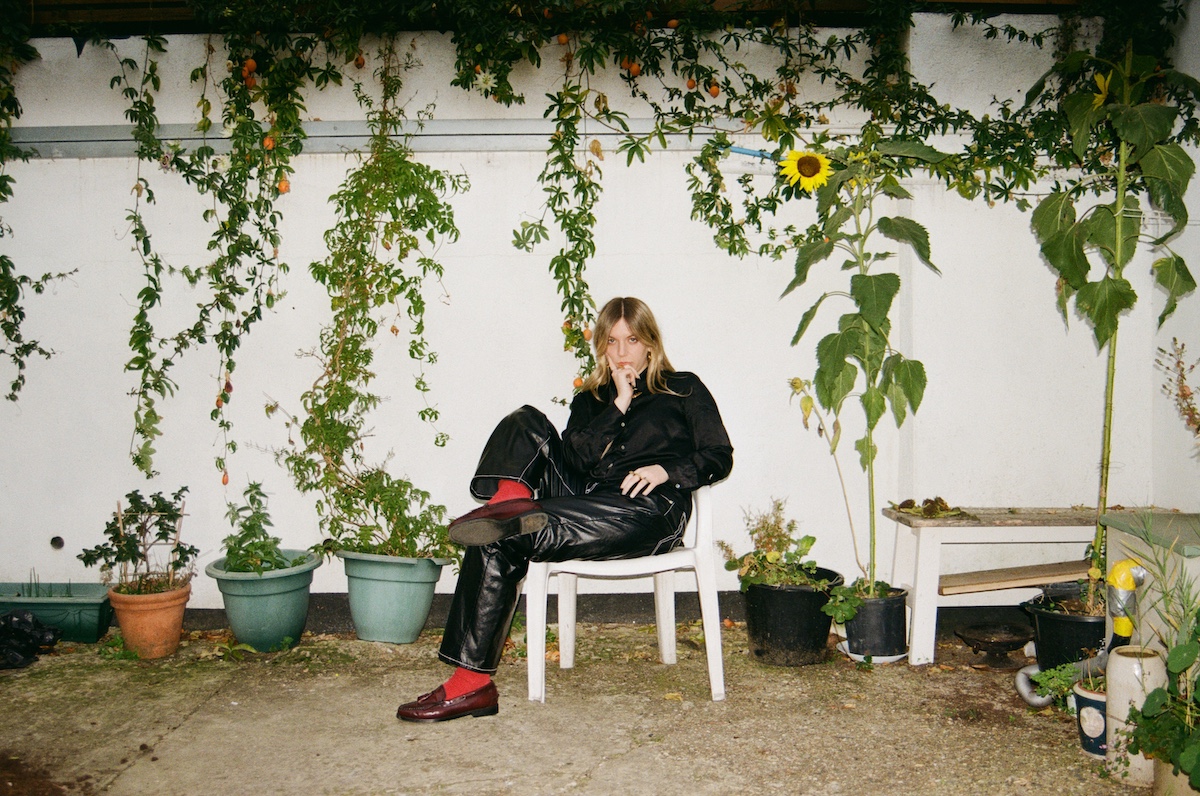
If I play a guitar solo and it feels how I want to feel, that’s the same feeling as to saying what I want to say.
* * *
Returning to songs, again, we now touch on “Jeffery,” a gorgeously instrumentally led track that has no lyrics or prominent vocals which also notably features the musician Cory Henry on the organ. When asked what this song says to her, Delilah says, “My favorite place to listen to music is on a long train journey, and that song to me just feels like a long train journey song. Like you can be feeling whatever you want to feel and that will enhance it. I’m hoping that it’s not for one mood in particular, but it will just enhance whatever mood you’re in.”
Delilah suggests that while “Necklace” was the first song recorded and specifically made for the album, “Jeffery” had been in the works for more like five years: “I had just been playing it in my bedroom for years and also just playing it and changing it on stage.” She mentions how she would write it while playing it on stage, just experimenting and seeing “what reacts well” while considering what she enjoyed playing. All in all, making it one of the more personal songs for Maya Delilah.
The next song we touch on is “My Balloon,” another one that was crafted in Devon. It again came about quickly and with an air of serendipity as Delilah describes saying, “I was playing these chords that I had learnt from learning the song ‘Belle’ by Jack Johnson, which is this French song that he has.”
She explains, “I was playing those chords, and we kind of reformed them in a different structure, and I think there might have been a visual on the screen someone had of a balloon, and I think that that imagery made the song happen really quickly.”
And for the last song we go into detail about, it is one that Delilah picks as one she is particularly excited to perform live. It is “I’ll Be There in the Morning,” which she has only played live once, but when she did it, she played the piano upside down. In terms of how it came about, Delilah indicates, “that was one where I did say exactly how I felt.”
She talks about how she had had a rough day, and was with Aquilo, a musical duo Delilah has worked with before, and wound up writing about what she was feeling in the moment. Retrospectively, Delilah states, “that was the most therapeutic session” she thinks she’s ever had because everything just came out.
Additionally, Delilah shares that with that song, she had been listening to a lot of Nick Drake, which inspired and allowed the song to sonically go where she wanted it to go.

Now with all artists, there has to be a moment when they realize music is that one thing they have to do.
It is here where we return to Prince, because for Delilah, the moment it started to click was when her mom asked her to consider “What would Prince do.” Prior to this moment Delilah tells us “I never took it completely seriously when I was young. Like I would play it more than I would do anything else, but I never, when I was little, was completely like ‘I want to be a musician,’” she instead recalls that during her childhood her aspirations were of being a dancer.
Delilah carries on again, noting that she was unhappy at school, and so when sixth form came around, she applied for quite a difficult music college “just to get some experience of auditioning for stuff,” not expecting to be accepted, though she ended up getting in.
“That scared the shit out of me,” she admits, because it was quite limiting in terms of options. If she decided to attend, she would have to stick with music, thus putting all her eggs in one basket as far as future university options go. Crippled by fear during a “summer of hell,” Delilah says that the moment that switched it for her was when her mum asked her, “what would Prince do?” – to which Delilah responded in the moment, “Well now that you’ve said that, I have to go to this music school, because obviously that is what Prince would do.”
Words to live by, if Delilah’s success so far is anything to go off of.

Shifting gears, we now move into a discussion of aesthetics and the appeal of leaning so heavily into establishing a “look” or a noticeable brand.
As one of the most well-dressed artists in the current scene, and being someone who doesn’t shy away from color or patterns, the appeal of Maya Delilah is well-rounded. In other words, yes, her music is fantastic, her guitar skills go above and beyond, but she is truly the whole package and offers something on all fronts. When asked about the correlation, Delilah shares, “I think I have always been into visual things.” She explains that both her parents were in film and she was brought up in a “very colorful household.”
“I was quite an eccentric child as well, and used to wear a lot of crazy outfits. Fashion has always been a big form of expression for me, and I think that has just carried through. Artists that I really look up to seem to always have a really cohesive style, and look, and brand,” she notes, clarifying that she means cohesive in the sense that “there’s a world around them.” She specifically points out Tyler, the Creator as a major brand-related influence for the way he has curated a look that meshes seamlessly with his music, creating a world that is unique to him.
As we near the end of our conversation, it is revealed that at the end of the day, for Delilah, creating comes down to inspiration. In terms of her music, she never wants to pigeon-hole herself into a specific lane in terms of genres. With this in mind, it’s best to know that Maya Delilah will always be experimenting. She expresses the sentiment “I’m not trying to make music to be famous, I’m trying to make music because I just want to make music.”
“Whatever music that comes out is just music to me. That’s the goal, so if people like it, people like it.”
It can be assured, though, that regardless of what style Delilah falls into, at the center of it all, her voice and guitar will remain. She adds that by going with her gut and following her musical intuition, “There’ll be stuff that people hate, I’m sure, but I’m hoping that within a bunch of different sounds, hopefully it can resonate with someone.”

I was quite an eccentric child as well, and used to wear a lot of crazy outfits. Fashion has always been a big form of expression for me, and I think that has just carried through.
* * *
We close our conversation out with a brief touch on what Delilah’s broader goal as an artist is and what she hopes listeners gain from The Long Way Round.
As far as artistry goes, Delilah breaks it down in two parts, the first being, as she puts it, “to inspire people.” She details in particular that her focus is on young women and encouraging them to pick up the guitar. “I really want more women to pick up the guitar,” she says, recognizing that it’s still a male-dominated instrument.
Secondly, Delilah states that she just wants “to make music that makes people feel stuff and can cry to and be happy to.” Regarding the album, she says, “I came out of it hoping that people would be able to feel nostalgic to it, and I know that won’t apply to everyone, and it may just apply to a small pool of people, but I think… I really hope it’s music to create memories to and that it’s music that people feel straightaway comforted by and homely by, because that’s what it is to me.”
Created with a tangible sense of passion for the art and intense attention to craft, with gorgeously crafted lyricism throughout and guitar solos that sing and genuinely add so much to the narratives Maya Delilah crafts, The Long Way Round is a master class in genre-bending and a thrilling look at one of North London’s newest, and most electrifying artists to be on the climb.
The Long Way Round, Maya Delilah’s debut album, is out now and available to stream everywhere.
— —
:: stream/purchase The Long Way Round here ::
:: connect with Maya Delilah here ::
— —
“Man of the House” – Maya Delilah
— — — —
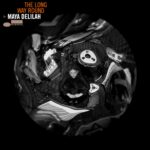
Connect to Maya Delilah on
Facebook, Twitter, TikTok, Instagram
Discover new music on Atwood Magazine
© Abeiku Arthur
:: Stream Maya Delilah ::

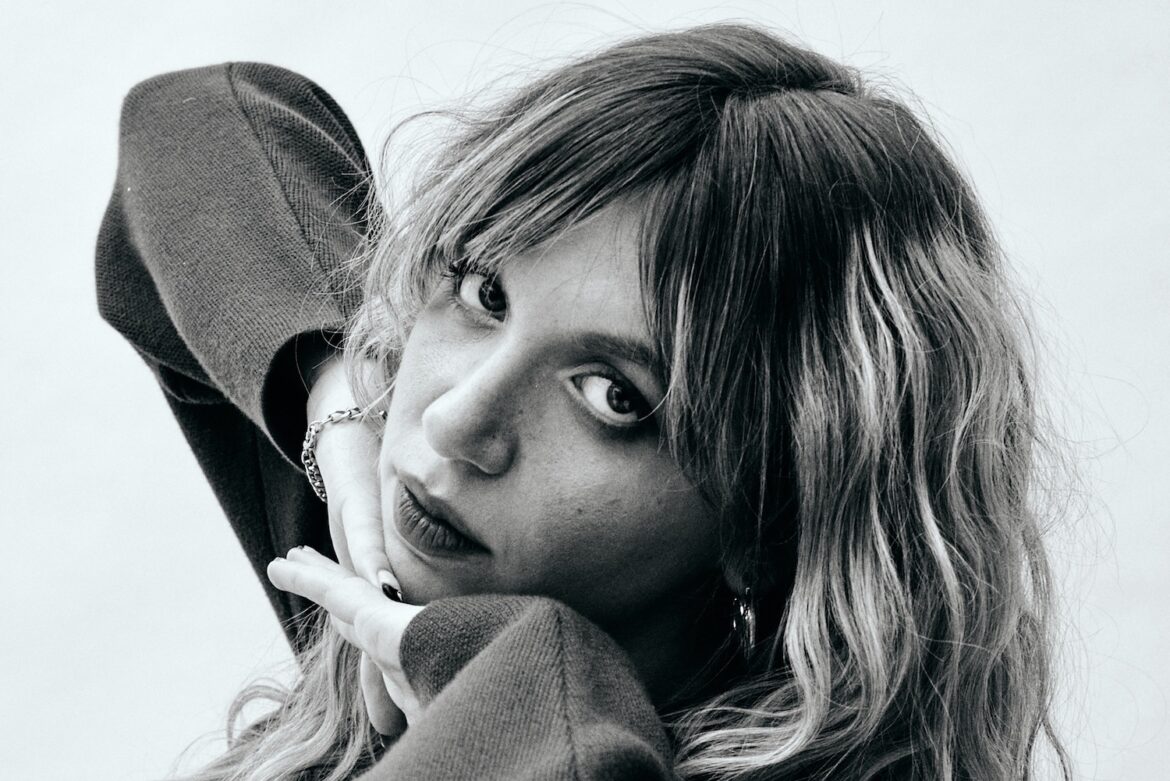
 © Abeiku Arthur
© Abeiku Arthur